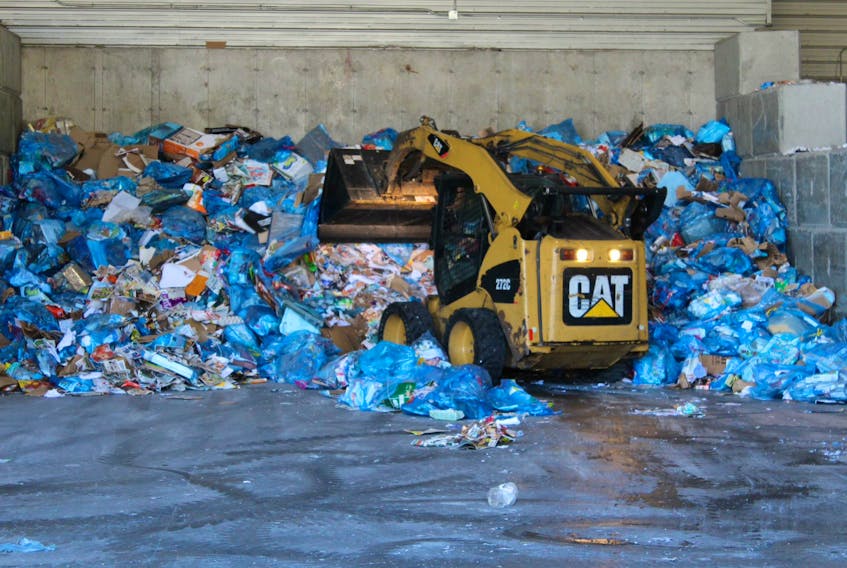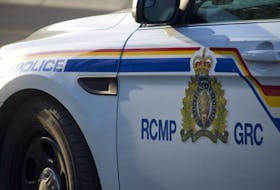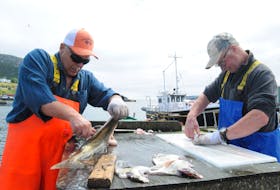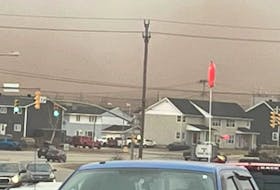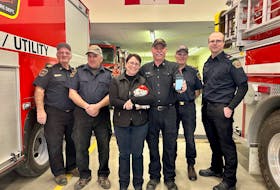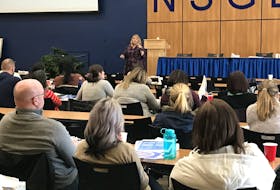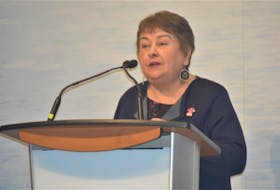ST. JOHN'S, N.L. — For the first time in seven years, the Eastern Regional Service Board (ERSB) has decided to increase tipping fees for waste sent to the Robin Hood Bay Waste Management Facility.
According to a recently published notice, the board will increase the charge for landfill-bound materials at the site from $67.60 per metric tonne to $75 — a 10.9 per cent increase.
The charge for recyclables, meanwhile, will rise 10 per cent, from $20 per metric tonne to $22. The changes will come into effect on April 1, 2020, representing the first time since 2013 that fees have gone up.
In an interview with The Telegram, ERSB chair Harold Mullowney said the volume of waste going to the site was consistently high for many years, but that hasn't been the case in recent years.
Tipping fees collected at Robin Hood Bay pay for operational costs and capital expenses.

"Now that the tonnages have gone down, revenue for Robin Hood Bay has gone down, so there's a need to try and recoup some of that cash," Mullowney said, adding that the ERSB has lately been forced to dip into its reserve funding to deal with capital costs at the site.
The City of St. John's, the facility's largest municipal user, has witnessed a substantial decline over the years in the amount of waste it drops off. In 2014, it sent 25,899 metric tonnes of landfill-bound materials and 3,155 metric tonnes of recyclables to the site. Four years later, in 2018, those figures were down by 7.2 per cent (to 24,037 metric tonnes) and 17.4 per cent (2,606 metric tonnes) respectively.
Coun. Ian Froude, council lead for public works at the City of St. John's, was not available for comment, according to a city spokesperson.
Bay Roberts has also experienced a decline in the amount of garbage it sends to the facility, while also increasing the amount of recyclables it sends to Robin Hood Bay (the town handles waste collection internally rather than contract the service out). From 2015 to 2018, the tipping fees it paid for waste collection overall declined 15.6 per cent, from $157,330 to $132,758. If Bay Roberts had been charged under the new fee structure for the waste it collected in 2018, the total cost to the town would have increased to $147,276.
As a result, municipalities will want to further decrease the amount of garbage they send by encouraging more residents to separate their recyclables from general waste.
"The rate for recyclables is much lower than the rate for general garbage, so hopefully more and more people will start to realize that recycling is the way to go, and that's what we're all about," Mullowney said. "We're trying to prevent more and more material from going into the landfills."
Bay Roberts Mayor Philip Wood said he's not surprised by the increase in tipping fees, adding it's higher than he would have anticipated.
"It's an increased cost to the municipalities, and on top of that we have increased labour costs, gas increase … and we're going to have to be dealing with power rates (going up)," Wood said.
"But from a municipality standpoint, we were trying to hold mill rates steady, because many rural communities — and Bay Roberts is no different — have many people on fixed incomes, so it's certainly going to be a hit to the budget this year, and it certainly means we'll have to make cuts somewhere else."
"...it's certainly going to be a hit to the budget this year, and it certainly means we'll have to make cuts somewhere else." — Bay Roberts Mayor Philip Wood
Wood said he is pleased the recyclables fee remains considerably lower than the one for landfill-bound materials.
"When you can pay $22 a tonne versus $75 a tonne, it's obviously to everyone's advantage, not only for the environment but also to help deal with the increases and costs to your municipality."
To further keep the cost of waste collection down for municipalities, Wood suggested residents could make more use of waste recovery facilities where bulk residential items can be dropped off for free. The ERSB operates such sites in Bay Bulls, Renews-Cappahayden, St. Joseph's, Placentia, Sunnyside, Cavendish, Old Perlican, Harbour Grace and Whitbourne. An additional site is proposed on Bell Island, according to the ERSB.
Twitter: @CBNAndrew
St. John's waste data (metric tonnes)
• 2014 — 25,899 (Landfill) 3,155 (Recycling)
• 2015 — 25,225 (Landfill) 3,005 (Recycling)
• 2016 — 25,881 (Landfill) 2,611 (Recycling)
• 2017 — 24,929 (Landfill) 2,536 (Recycling)
• 2018 — 24,037 (Landfill) 2,606 (Recycling)
Bay Roberts waste data (metric tonnes)
• 2015 — 2,307.7 (Landfill) 66.5 (Recycling)
• 2016 — 2,014.2 (Landfill) 74.2 (Recycling)
• 2017 — 2,002.1 (Landfill) 67.0 (Recycling)
• 2018 — 1,941.8 (Landfill) 74.6 (Recycling)
Annual tipping fees paid:
• 2015 — $157,330.04
• 2016 — $137,641.22
• 2017 — $136,682.16
• 2018 — $132,758.56

